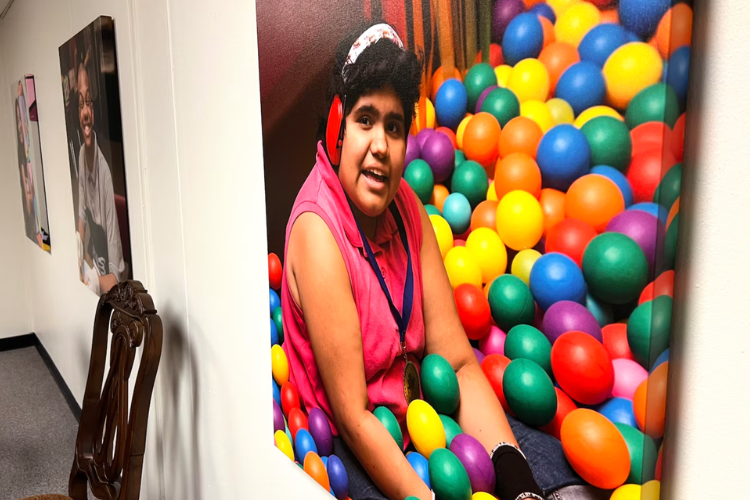By Melanie Asmar, Chalkbeat Colorado
New law leads to opening of schools that provide services for students with emotional and mental challenges, legal system involvement and trauma
Three new specialized Colorado schools began working with school districts this fall to serve students with some of the highest needs in the state. A fourth new school works with teenagers and young adults who are in the juvenile legal system.
Known as facility schools, the number of these specialized schools had been dwindling for years due to low state funding, staffing shortages, and operating hurdles. Fortunately, these four new schools indicate that a state law passed last year is having the intended effect of increasing options for what one state report called some of Colorado’s “most vulnerable” students.
Together, the schools will provide more than 100 seats for students in Colorado, according to the state, shortening the long waitlists that have become common.
“It’s a sign that things are moving in the right direction,” said outgoing state Sen. Rachel Zenzinger, an Arvada Democrat who sponsored the 2023 bill, "but, it’s going to take a little bit more time to fully know the impact.”
Two of the new schools, TACT and Joshua Early Childhood Center, existed previously and recently received the state facility designation, opening up flows of public school funding and students. Another school, Austin Centers for Exceptional Students, is new to Colorado. The organization runs six similar schools in Arizona.
Rocky Mountain Leadership School in Idaho Springs serves adjudicated boys and young men, ages 16 to 20, who are in the custody of the state Division of Youth Services.
Many students who attend facility schools struggle with intense mental or behavioral health needs. Some have diagnoses of autism or emotional or intellectual disabilities. Others have experienced trauma, chronic illness or substance abuse.
Facility schools are often schools of last resort. School districts and other state agencies send students to facility schools when they can’t meet the students’ needs. The districts pay tuition, and the facility schools also get funding directly from the state.
There were 80 facility schools in Colorado in 2004, but the number had plummeted to 30 by the time the new law was passed in spring 2023. Two more facility schools, Devereux Cleo Wallace in Westminster and Jefferson Hills in Lakewood, closed shortly thereafter.
The law does seem to be slowing the pace of the closures, advocates said. Among other changes, the law increased state funding for facility schools, allowing them to raise teacher pay and better compete for talent. It also created a new category called "specialized day schools" that provides a different way for schools and programs to get licensed as facility schools.
Also, the law created a grant-funded program that allows facility schools to band together to pay for services such as food, accounting and technology. Facility schools participating in a pilot program saved between 15 percent and 30 percent on such services.

“It was the biggest sigh of relief for me of, ‘Yes, this is what we intended for this bill,’” said Becky Miller Updike, the executive director of the Colorado Association of Family and Children’s Agencies, which represents several facility schools.
Still, challenges remain. Most Colorado facility schools, including the new ones, are located along the Front Range. Rural students have few to no options.
“The giant black hole continues to be the non-metro area,” Miller Updike said. “We all hope we can get a lot more geographic representation across the state for these kinds of schools.”
Austin Centers called to Colorado by long waitlists
Brad Trout, principal of the new Austin Centers school in Westminster, said the organization had been looking to expand outside Arizona for several years. Austin Centers looked at six states including Colorado, said Trout, who previously worked for the organization in Tempe.
“When they looked at Colorado, they found that there were a lot of students that were homebound, and a lot of students that were on waitlists to get into facility schools,” Trout said. “That’s really the impetus behind the decision to come up here.”
Austin Centers was approved by the Colorado Facility Schools Board in early August, but word had filtered out before then. Trout said he began hearing from school districts in June.
“School districts started reaching out to me, sending me copies of [special education plans] saying, ‘Hey, can you review this kid? Let me know if this is a student you could work with,’” he said. “School districts were taking a big risk on us getting approved.”
Austin Centers now has 44 students in kindergarten through 12th grade, some of whom travel as long as an hour and 45 minutes to get there. It’s located inside the former Witt Elementary, shuttered by Jeffco Public Schools in 2023 due to declining enrollment.
Class sizes are no bigger than eight students; there are sensory materials in every classroom; and the school has a team of physical therapists, occupational therapists, speech therapists and psychologists to help students regulate their behavior and access learning.
Courtney Leyba, the Denver Public Schools administrator in charge of placing Denver students at facility schools, called Austin Centers “a godsend for us.”
“We now no longer have students waiting to find a placement,” she said at a recent school board committee meeting, noting that the district already had placed 17 students there.
TACT teaches trades to teens
TACT, which stands for Teaching the Autism Community Trades, is for older students with autism or other neurodiversity. Located in a warehouse in Englewood, TACT teaches skilled trades such as carpentry, welding, auto mechanics and culinary arts.
“This isn’t building birdhouses,” said founder Danny Combs, who was inspired to start TACT in 2016 because he has a son with autism. “It looks like what a trade school should look like.”
TACT offers workshops for younger children, but its main programs focus on training teenagers and young adults for well-paying jobs in the trades, helping them find positions and supporting them at work. The organization was funded previously through a combination of philanthropy and state programs for differently abled people.

However, since TACT is not a traditional school, Combs said the organization would sometimes run into problems when trying to work with school districts. Combs said school principals would sometimes refuse to send students even if TACT appeared in special education plans.
So in 2019, TACT began looking into becoming a facility school, but the organization didn’t quite fit the mold. It wasn’t a day treatment center or a residential program, as many facility schools are. It didn’t have a child care license, as others did and it didn’t offer therapy programs, though Combs says it is therapeutic.
“Our students are getting therapy. They just don’t know it,” he said. “It’s more real.”
The new specialized day schools category finally allowed TACT to become a facility school for students aged 18 to 21 who are still enrolled in public schools. Differently abled students can delay graduation to attend vocational or life skills training until they turn 21.
TACT currently serves 80 teens and young adults, but Combs said only 35 are between the ages of 18 and 21. Of those, only eight qualify as facility school students because they haven’t yet graduated high school. The goal is to grow participation in the coming years, Combs said.
“Now, this allows students who want to come here the opportunity,” he said.
Joshua School fills a need for young students
Joshua Early Childhood Center also serves students with autism, but on the other end of the age spectrum, where there was a lack of facility school seats.
The school’s current students range in age from 4 to 8, though it’s licensed to serve children from ages 3½ to 10, said Executive Director Cindy Lystad.
Lystad oversees three schools in total: Joshua Early Education Center in Centennial and two locations of the Joshua School that serve school-age students in Englewood and Boulder. Each student has a one-on-one instructional aide who personalizes their education.
While the two Joshua School locations had been facility schools for many years, Joshua Early Education Center operated under a different model, Lystad said. Twelve of the 24 early education seats were filled by students with autism whose health insurance paid their tuition. The other 12 seats were filled by neurotypical preschoolers whose families paid tuition.
The neurotypical students served as behavior models for the students with autism, a so-called inclusion program that Lystad said worked beautifully, but wasn’t “fiscally salvageable.” Last school year, the school transitioned its 12 insurance seats to facility school seats. Lystad said the seats were filled before the state had even approved the facility school license.
“Districts were saying, ‘I want a seat, I want a seat, I want a seat,’” Lystad said.

So this school year, Joshua Early Education Center transitioned fully to a facility school. All 24 seats were filled within 24 hours by waitlisted students, Lystad said.
“We field multiple calls a day at all of our campuses of, ‘How do I get my child into your school?’” she said. “It almost breaks my heart because every single one of those phone calls is a kid, is a family, is a situation. They are desperate for a place for their kiddo.”
Melanie Asmar is the bureau chief for Chalkbeat Colorado.
This article was republished with permission. Chalkbeat is a nonprofit news organization covering public education. Sign up for their newsletters. Read the original article here.


